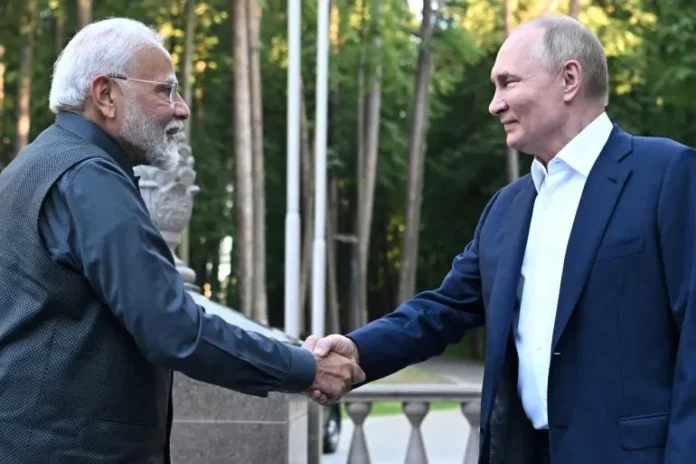Brussels Issues Strong Message to New Delhi
The European Union has delivered a sharp warning to India, cautioning that New Delhi’s participation in Russian military exercises and continued imports of Russian oil could undermine prospects for closer EU-India ties and jeopardize a long-anticipated free trade agreement. The statement was made as Brussels rolled out its new EU-India strategic partnership framework, signaling that Europe is taking a tougher stance amid mounting global pressure to isolate Moscow’s war economy.
EU foreign policy chief Kaja Kallas spoke at a press conference in Brussels, stating bluntly that “participating in military exercises, purchases of oil — all these are obstacles to our cooperation when it comes to deepening the ties.” Her remarks follow India’s controversial decision to send 65 troops from the Army, Air Force, and Navy to participate in Russia’s Zapad 2025 military exercises in Belarus. The drills, which ended Monday, involved more than 100,000 soldiers and included simulated conflict scenarios near NATO’s borders.
Strategic Pressure from Washington
The EU’s warning comes at a critical moment as the United States is intensifying its campaign to penalize countries that continue trading with Russia. President Donald Trump has already imposed tariffs on Indian goods — now totaling 50 percent — citing New Delhi’s ongoing oil imports from Moscow as a key reason. Reports suggest Washington is urging European allies to adopt similar measures, including tariffs of up to 100 percent, further complicating Brussels’ balancing act.
Faced with these geopolitical pressures, the EU delayed the announcement of its 19th sanctions package against Russia. Officials in Brussels say they must weigh Washington’s demands against their own economic and strategic goals in the Indo-Pacific region. “The question is always whether we leave this void to be filled by somebody else or we try to fill it ourselves,” Kallas said, highlighting the EU’s dilemma in maintaining influence with India while taking a firm stance against Russia.
Military Drills Raise European Concerns
India’s role in the Zapad 2025 war games is a key point of contention for European leaders. The exercises featured scenarios involving NATO forces and even rehearsed deployment of Russian tactical nuclear weapons. Moscow also showcased its new Oreshnik hypersonic missile system during the drills, further fueling European alarm.
According to Russia’s Defense Ministry, India’s contingent — led by a battalion from the Kumaon Regiment — focused on counterterrorism and conventional combat tactics. Other participating nations included Bangladesh, Iran, Burkina Faso, Congo, and Mali. European diplomats argue that such participation undermines global efforts to diplomatically isolate Russia over its invasion of Ukraine.
Free Trade Agreement at Risk
Despite tensions, Brussels insists that a free trade agreement with India remains a priority. Trade between the EU and India has grown by 90 percent over the past decade, and the EU is currently India’s largest trading partner. Negotiators hope to conclude the deal by the end of the year, which could unlock new opportunities in technology, green energy, and defense cooperation.
However, Kallas emphasized that progress depends on resolving disagreements linked to Russia. “Negotiations are negotiations, and until we agree about everything, then nothing is agreed,” she said, suggesting that unresolved issues could stall or even derail the entire agreement.
The EU’s newly released strategy document outlines plans for enhanced collaboration on security, digital innovation, and climate change but also commits Brussels to “further engage with India on all aspects of countering Russia’s military aggression against Ukraine.” Analysts say this language reflects growing frustration within the bloc as it struggles to reconcile strategic partnership goals with its broader foreign policy priorities.
Global Stakes for EU-India Relations
The EU’s message underscores the stakes for both sides. For Europe, India represents a vital partner in diversifying supply chains away from China and strengthening its presence in the Indo-Pacific. For India, closer ties with the EU could bring major economic benefits and new markets for its rapidly expanding economy.
But with the Ukraine conflict still raging, New Delhi’s balancing act between Moscow and the West is under increasing scrutiny. Whether economic incentives will outweigh geopolitical frictions remains uncertain — and the coming months will determine if Brussels and New Delhi can find common ground without sacrificing core interests.
Sources: DAWN


